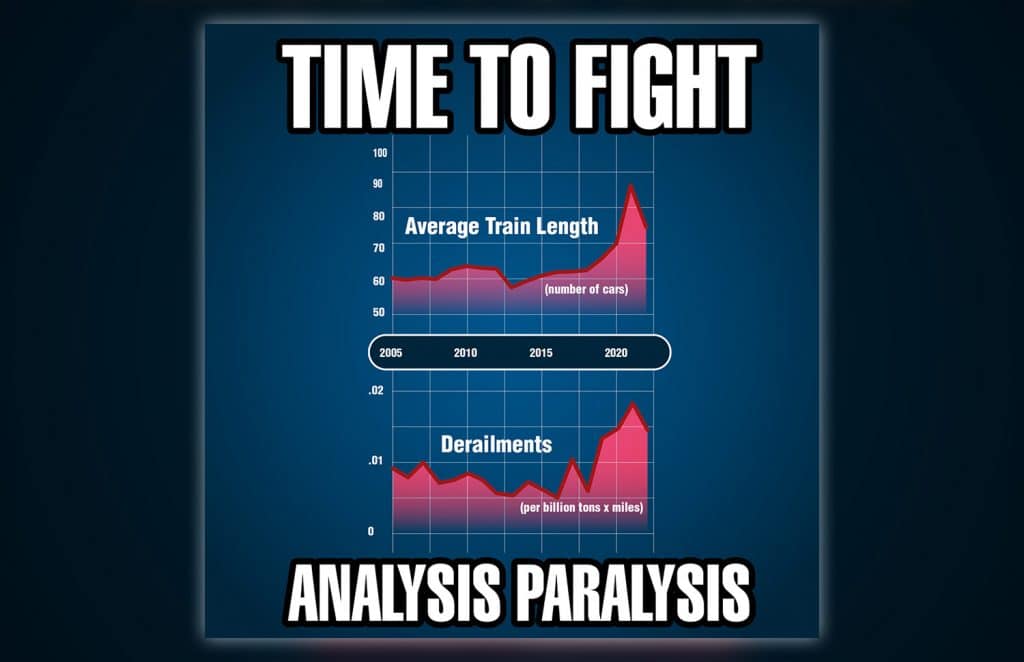Hundreds of railroaders, along with friends, family and labor supporters, gathered at Boston’s historic South Station in October to rally for fair wages, sick leave, maternity days and other essential benefits.
The event was coordinated by a coalition of rail labor organizations, including SMART-TD, the AFL-CIO, IAM, ATDA, BRS, TCU and IBEW. Workers and allies confronted Keolis, the French-owned passenger rail operator of the Massachusetts Bay Transportation Authority, which has neglected negotiations since the previous contract expired July 1, 2022.
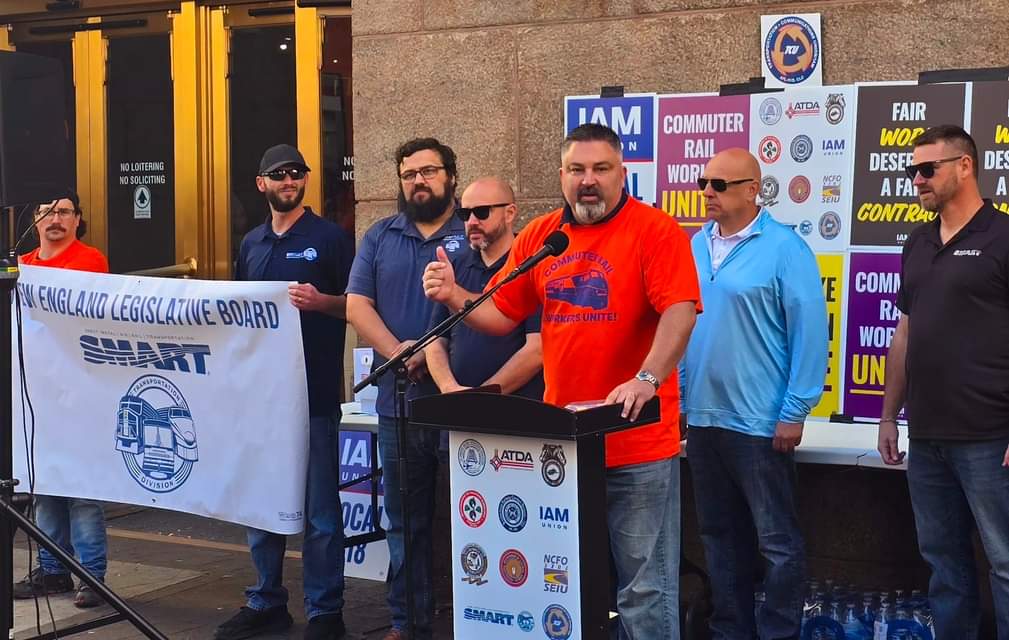
The rally featured passionate speeches from local Boston elected officials, four members of Congress and representatives from multiple rail unions.
SMART-TD was represented by Deputy National Safety and Legislative Director Jared Cassity, who emphasized the importance of solidarity among the unions.
“Today is our day. Now is the time to get the contract you all deserve!” Cassity declared. “It does not matter if you are an engineer. It does not matter if you are a conductor, if you’re a signalman, a dispatcher, a track worker; whatever the issues are, they are OUR issues. And the only way we fix them is when we stand together, and we fight together!”
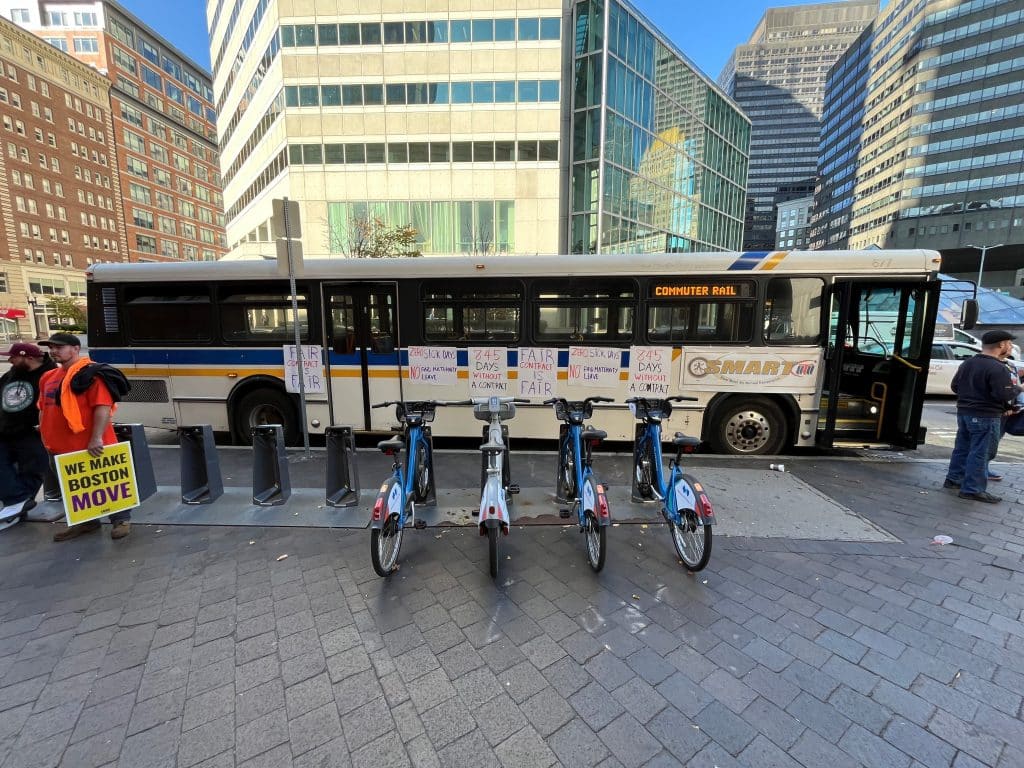
Keolis has been accused of failing to bargain in good faith with SMART-TD and the other unions representing their workforce. As Congresswoman Ayanna Pressley pointed out in her speech, Keolis workers are paid 12% less, on average, than their counterparts on Amtrak to move the same passengers in Massachusetts.
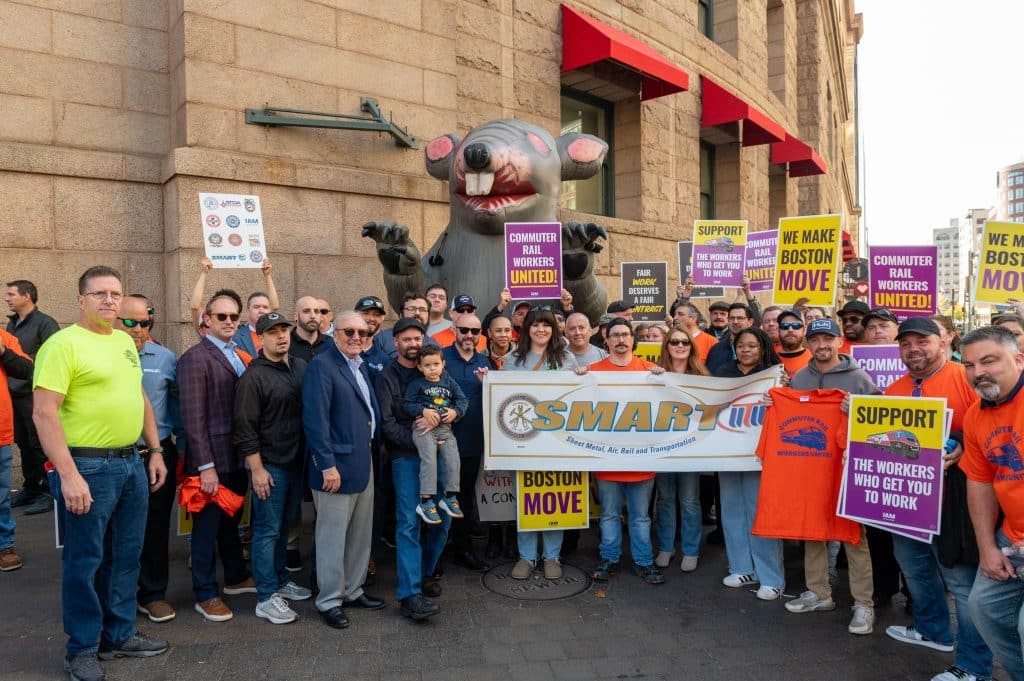
Congressman Steve Lynch added that Keolis is contracted out by MBTA to run the commuter rail system in Boston, and the company’s contract is coming up for bid. He made it clear that if Keolis doesn’t come to the table and get serious about retaining the frontline workers who keep Boston trains running safely and on time, it will be replaced by a contractor that will.
More than 50 SMART-TD members attended the Oct. 23 rally, as well as brothers and sisters from SMART Local 17 and the Northeast Regional Council. The overwhelming message was clear: Workers will continue to fight for a fair agreement until they have a new contract.
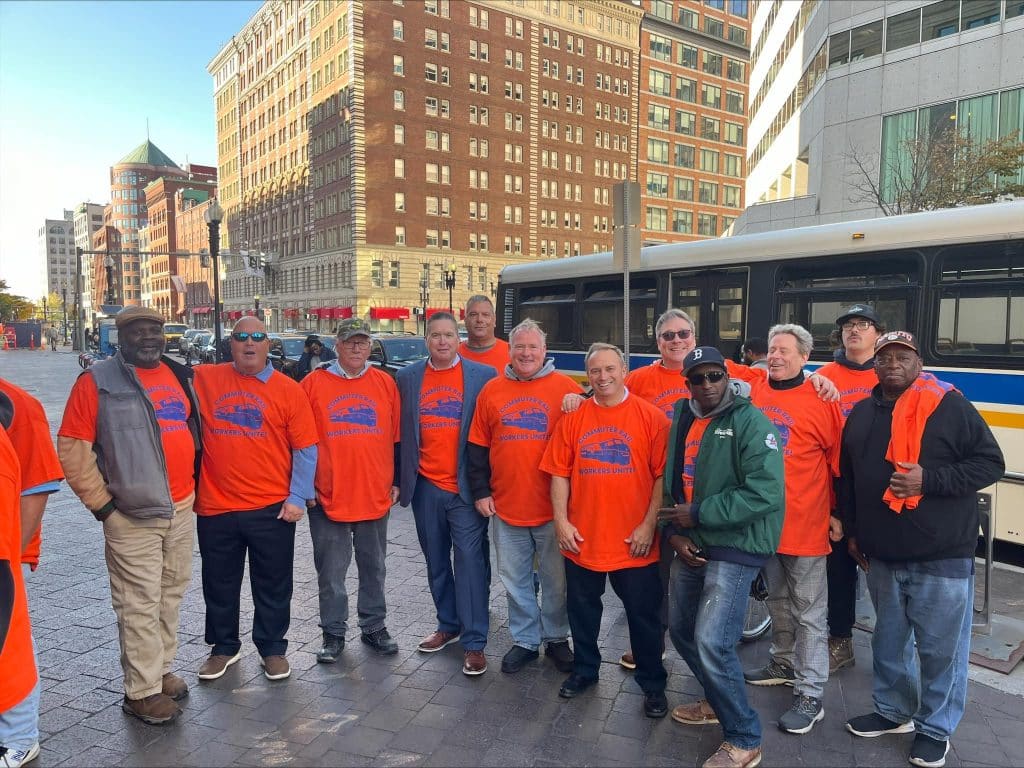
“We showed Keolis that workers, riders, our congressional delegation and the whole Massachusetts labor movement is behind us in our fight for a fair contract,” said New England Safety & Legislative Director Dave Stevenson.


